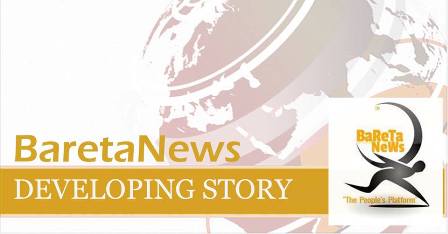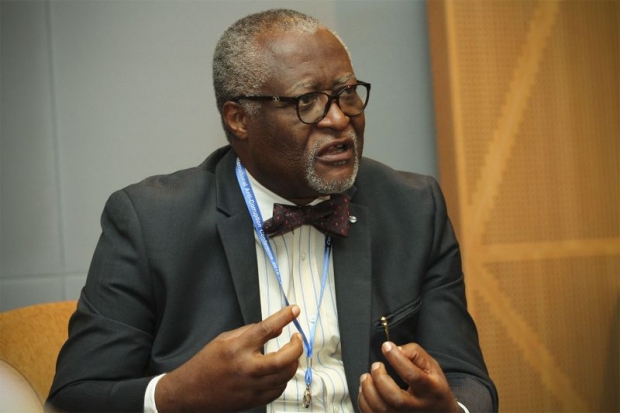Atanga Belmondo is a political historian, youth leader and a Cameroonian based in South Africa. Yesterday, BaretaNews published a piece from Tapang Ivo titled ” Biya is a good man after all”. This has prompted Belmondo to send to BaretaNews his reactions based on Tapang’s take. He writes:
A lot of ink has been flowing on Facebook since my good friend Tapang Ivo, our free thinker dropped the bombshell on the goodness of our president. For one thing, I admired his courage and his dexterity to put in place a concise scholarly argument. But on the other hand, I refuse to be in the school of thought where I just react without doing some research. My intention is not to discredit who so ever but to produce a balanced discussion on this topic. Tapang was very articulate to cite many scholars in their different fields of politics and economics which I will not want to touch in this presentation.
One of the works that caught my attention was the works of Nicolio Machiavelli, the Italian diplomat, and politician. It must be noted that he wrote many works on politics but the PRINCE remains one of his greatest works that mankind has ever used, be it in political science, philosophy or history. This is because he touched on many things that concern the life of every nation and consequently every citizen, which is politics and the leaders. In short T.H Marshall in 1963 claimed that politics remains the main thrust upon which good citizenship can be a forge. Therefore permit me to take you on a ride on why I disagree with some of the fact raised by our free thinker.
As stated above the Prince was or is one of the books that has remained as a reference in many fields of studies. The book did not only terrify those who read them but also landed the author into hot waters with the Italian authorities at the time to the point where he was arrested, tortured and imprison. The book was only published five years after his dead by his friend Francesco Vettori. The author himself had claimed that the book is based on being an un-embellished summary of his knowledge about the nature of princes and the actions of great men, based not only on reading but also, unusually, on real experiences. It is not my intention to review the entire book but to base my fact on chapters 14-19 which were basically concentrated on the actions of the prince. From these chapters, I will be able to decipher if the descriptions given by our free thinker on our Prince warrants us to clap for him as a good man. For one thing, we must accept that the Prince is not supposed to be a good man but a feared man.
did not only terrify those who read them but also landed the author into hot waters with the Italian authorities at the time to the point where he was arrested, tortured and imprison. The book was only published five years after his dead by his friend Francesco Vettori. The author himself had claimed that the book is based on being an un-embellished summary of his knowledge about the nature of princes and the actions of great men, based not only on reading but also, unusually, on real experiences. It is not my intention to review the entire book but to base my fact on chapters 14-19 which were basically concentrated on the actions of the prince. From these chapters, I will be able to decipher if the descriptions given by our free thinker on our Prince warrants us to clap for him as a good man. For one thing, we must accept that the Prince is not supposed to be a good man but a feared man.
Tapang claims that our Prince is a good man because he initiated democracy in our country in 1990. Some folks have been trying so hard to convince the readership that democracy was forced down the throat of our prince who had no option than to embrace it. Be that as it may, Machiavelli in the Prince claimed that in times of adversity, the prince should act as if he is in support of what his people want and if need be go against his immediate supporters and take what the masses want. On doing that he will be seen as a good man and the masses will blame those who were against and not the prince.
I recall that at the dawn of multi-party politics in Cameroon, president Biya went on the podium to remind his immediate followers to follow the wind of change and embrace the new dawn. The same time doing that six people had been killed in Bamenda by forces of law and order. By doing that the Prince had just taken the advice given by Machiavelli. We recall that some of his supporters took to the streets to condemn the call for democracy in Cameroon. Some of his supporters saw their properties being looted and destroyed. This is because the masses saw in these people the evil that had refused to yield to the call of the Prince to accept democracy and not the Prince himself. In this case is our Prince a good man or a cunning man? Your thoughts are as good as mine.
Another important point made by Tapang is the idea of using Rigor and moralization as a barometer to measure the goodness of our prince. Yes, this was a masterpiece upon which everyone knew the real change had come to the country. Cameroonians at the time were comparing a 24-year-old regime left by former president and a few years of a young flamboyant and promising president who represented everything his people wanted. Machiavelli looks at this in chapter 18 as a prince that should be making promises and keeping them. In short, he argues that a prince is praised for keeping his word. However, he also notes that a prince is also praised for the illusion of being reliable in keeping his word. A prince, therefore, should only keep his word when it suits his purposes but do his utmost to maintain the illusion that he does keep his word and that he is reliable in that regard.
Therefore, a prince should not break his word unnecessarily. If we go by this can we say our prince has kept his words? Rigor and moralization were a blueprint to have a saint like a society where citizens will be judged not by the tribe, party, family, ideas or region from which they come from but by their competent and what they have to offer the nation. Looking at what is happening in our country can we say this is the case? I don’t think so.

Our free thinker argues that the Prince is not the one who push people to take bribes, Machiavelli advice the prince that there is no need to make laws that you cannot enforce because if those laws are not respected, they may come back to hurt him and may even lead to him being hated by his people. What goodness then do we find in this paradox?
In chapter 19, Machiavelli advice the Prince to do everything possible to avoid contempt and hatred. According to him, most men are content as long as they are not deprived of their property and women. A prince should command respect through his conduct because a prince that is highly respected by his people is unlikely to face internal struggles. He describes two fears in his book, which are internal and external fears. Judging from the conduct of our prince, living out of the country for months in luxurious hotels when our people lack basic needs, refusing to empathize with our fellow citizens in times of troubles, our soldiers fight and die to protect both him and us but yet he refuses to visit them in hospitals or even pay last respects to their corps are all good characters that our free thinker thinks must be praised.
when our people lack basic needs, refusing to empathize with our fellow citizens in times of troubles, our soldiers fight and die to protect both him and us but yet he refuses to visit them in hospitals or even pay last respects to their corps are all good characters that our free thinker thinks must be praised.
On the other hand, I will like to also state that I agree with Tapang on many things as we the people have a role to play but we are not doing so. I will come back to this section later.
Atanga Belmondo
Political Historian, South Africa.





